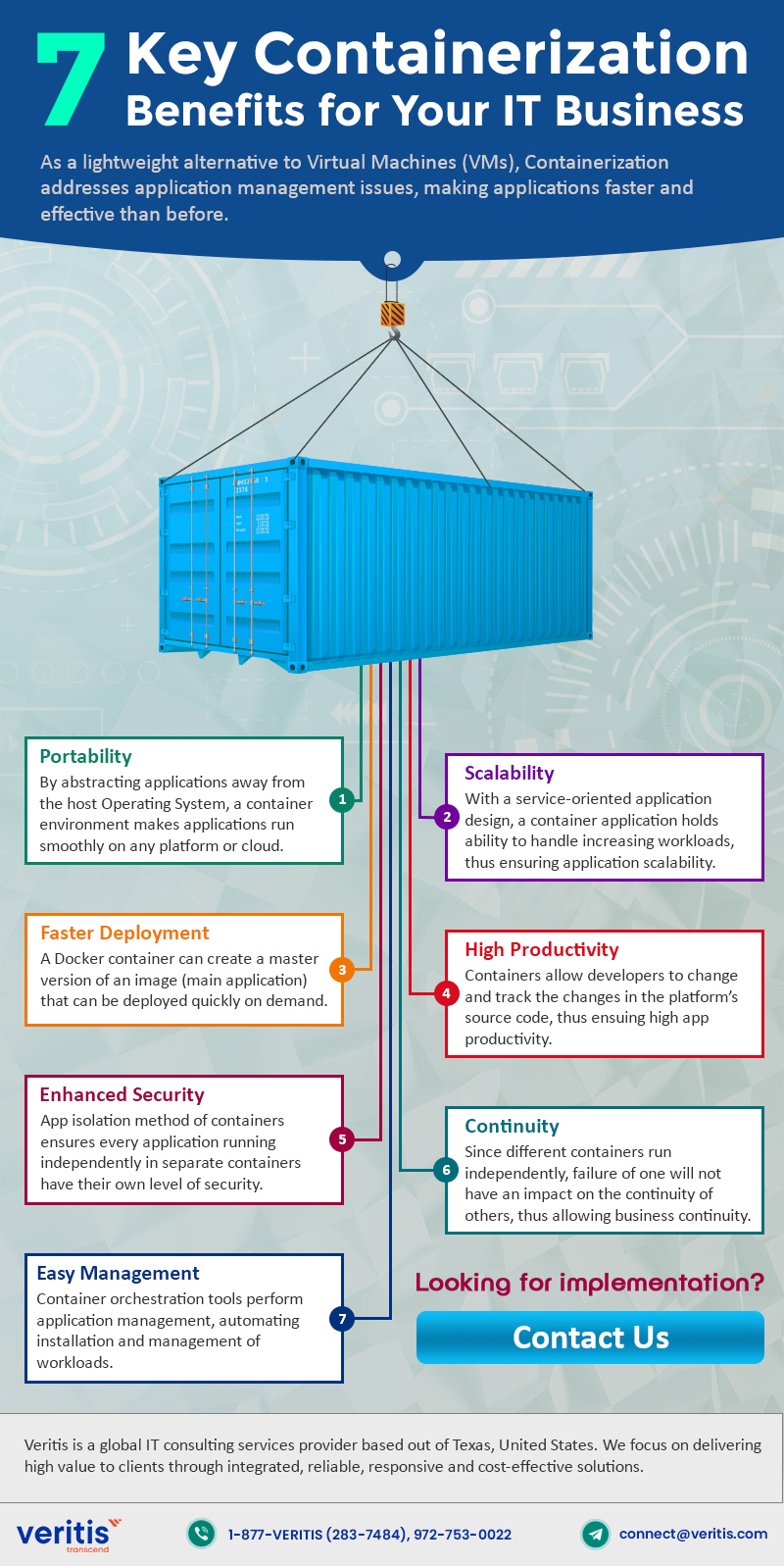
Advancing business operations is pushing organizations of every industry to gear up for infrastructure enhancements.
This scenario reached new heights with the advent of the digital trend, which led to the rise of application-specific business transformation. Eventually, timely product delivery, regular feature additions, and updates have become imperative to achieve business continuity.
At this juncture, the concept of Containerization technology shows an easy path to success in the application delivery cycle. Additionally, the benefits of containerization were motivating enough for enterprises to switch to cloud containerization rather than opt for other technologies.
As a lightweight alternative to Virtual Machines (VMs), containerization technology addresses application management issues, making applications faster and effective than before.
Unlike traditional infrastructure with applications and related file dependencies in a single VM, the containerized services package each application and its assets into different containers.
These containerization technologies possess higher adaptability for further distribution across VMs or physical servers.
Here are the Top Benefits of Containerization Technology that can offer to your IT business:

1) Portability
By abstracting applications away from the host Operating System, cloud containerization makes applications run smoothly on any platform or cloud. The OS containerization technology also avoids the occurrence of integration and other inconsistencies that might obstruct the app’s functionality. Thus, containerized applications are highly portable and effective across different servers.
2) Scalability
Containerization technology offers higher application scalability. With a service-oriented application design, containerized applications can handle increasing workloads. This can be achieved by reconfiguring the existing architecture to allow additional resources or adding more containers within the distributed machine cluster. This reconfiguration allows you to make effective containerization technology
Cloud containerization allows you to instantly add new functions, features, and updates without affecting the original application. This way, container technology allows application containerization scalability with minimum resource usage.
3) Faster Deployment
Containers are termed ‘lightweight’ because they can speed up the application configuration and deployment processes. A Docker container can create a master version of an image (main application) that can be deployed quickly on demand using containerization services.
A container environment ensures higher flexibility in creating multiple new containerized deployment instances of an application as and when needed on demand.
4) High Productivity
Containerization technology is known for facilitating a rapid development environment that generates more applications. Since portable applications use the platform’s source code to run, cloud containerization allows developers to change and track the platform’s source code changes, thus enhancing productivity.
By reducing the dependency on the main server or OS resources, they simplify and save time while installing applications on different cloud containerization platforms.
5) Enhanced Security
Since containerized applications run independently in separate containers, each will have its own level of security. This feature of containerized application isolation helps share additional features without any risk factor. If you are working with the development team outside your network, you only need to share the required resources without any critical information within your network.
6) Continuity
Since different containers run independently, failure of one will not have an impact on the continuity of others. Developers will have the flexibility to rectify errors in the identified container, without causing downtime of other containers. Thus, containers ensure continuity in operations.
7) Easy Management
Container orchestration tools manage applications, automate installation, scale, and manage containerization workloads. Containerization services allow you to perform logging, debugging, version updates, and other tasks related to containerized apps. Kubernetes is one of the most popular containerization tools.
By now, you must have realized the benefits of containerization technology. There are many such that container technology services can offer to your business to give you a competitive edge.
Conclusion
Containerization is one technique that enterprises and companies of various scales from different sectors are embracing. The availability of containerization tools and the benefits of containerization has fostered the growth of containerization and it is a trend that will continue to grow. However, this is a relatively new technology and it is not everyone’s cup of tea just yet. That’s one of the reasons why companies contact Stevie Award winner Veritis for a containerization solution. Reach out to us and get a containerization solution that works best for you.
Got Questions? Schedule A Meeting
Read More: